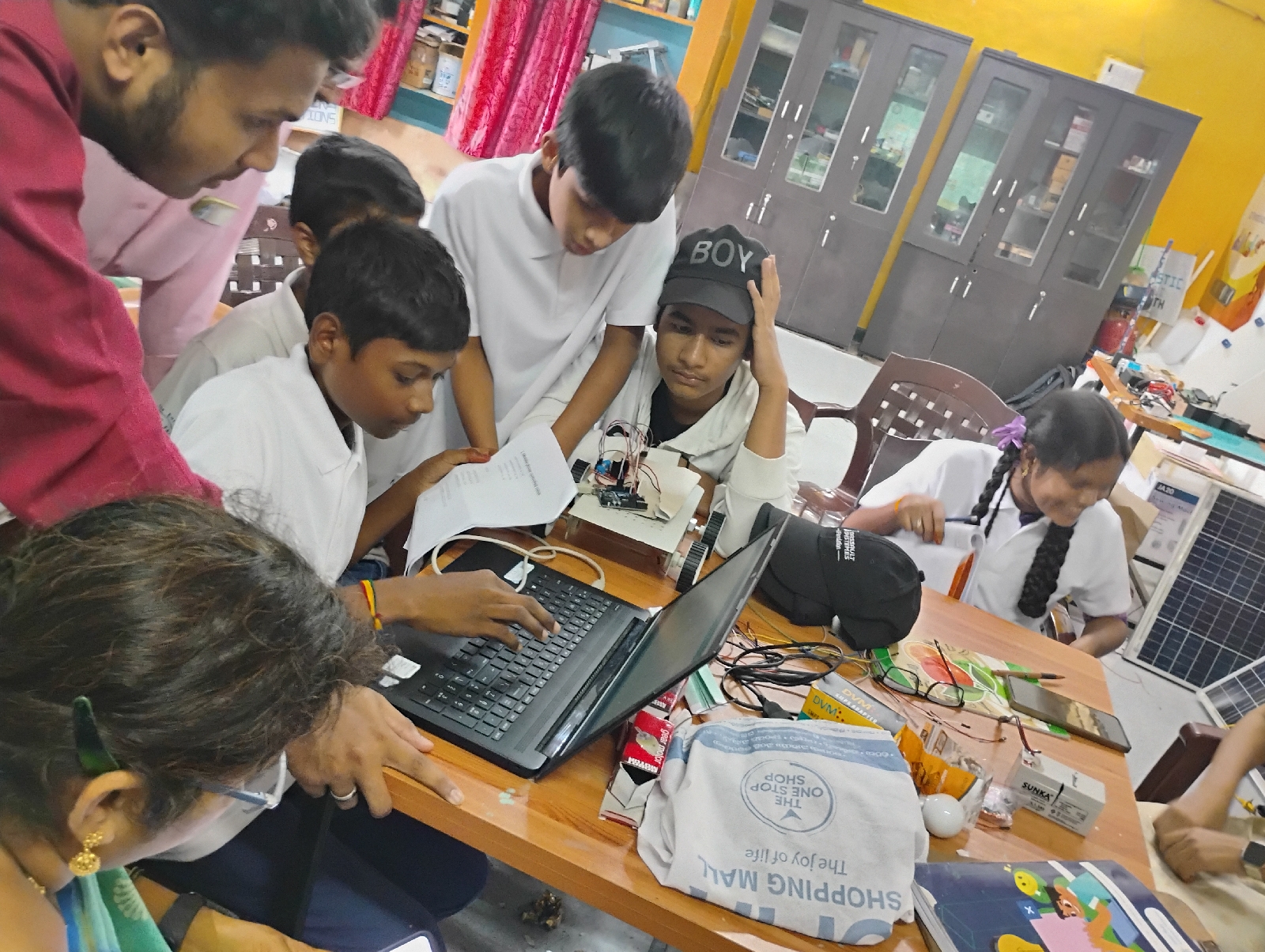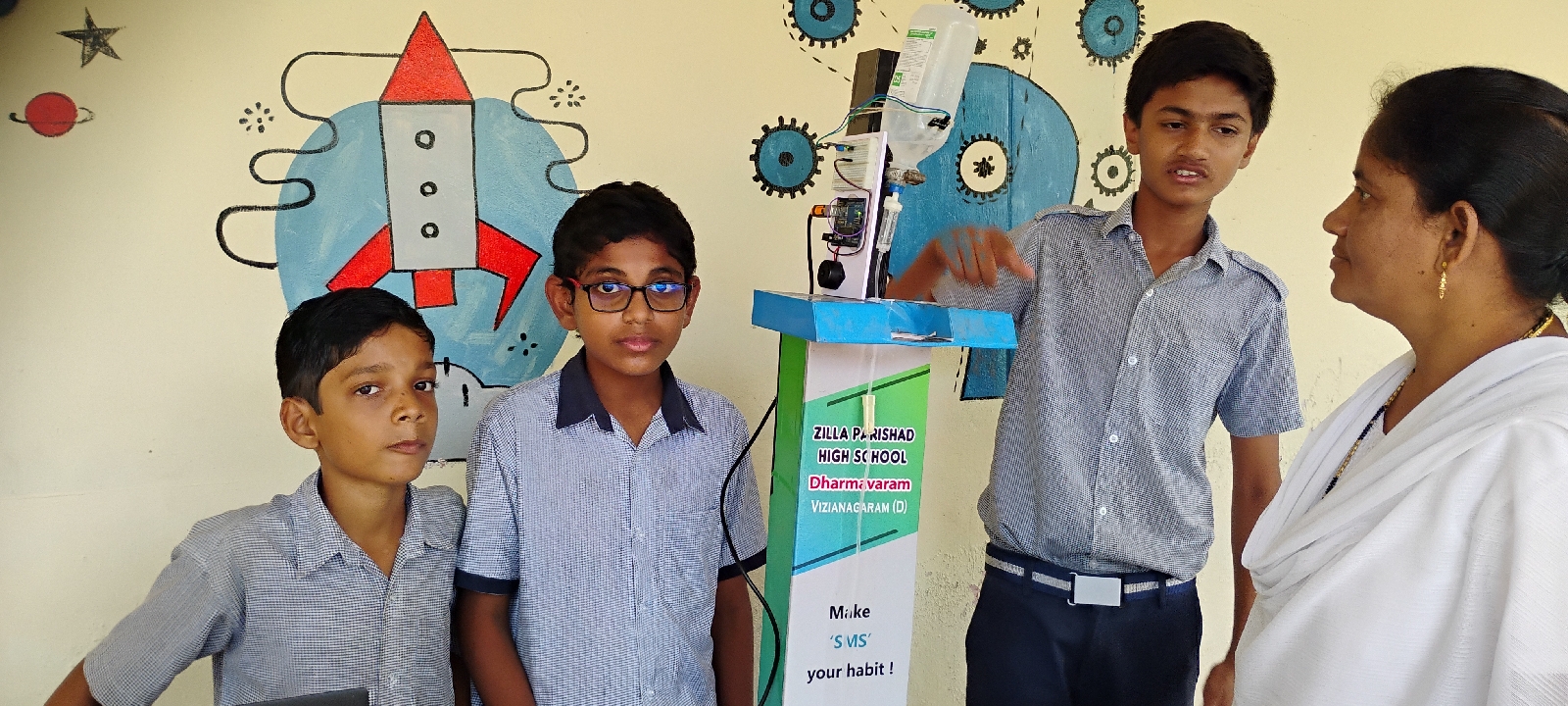Atal Tinkering Labs making thinkers

I am very happy to say, that Atal tinkering lab activities giving lots of job satisfaction to me. Making me very enthusiastic to do mentoring to the students innovations . As a lab incharge , since last 3 years I had been faced excellent movements with the young students from 6th to 10th grade. All of them are very exciting to do new things, to creating new, to choose new solutions for the existing problems. I learnt that the students are very interesting to do discussion about the topics and societal problems rather than listening the classroom teaching on freezed topics. Always they are like to become active in productive things. So they are not more interested on passive teaching learning practices. I understood that teachers/i need to teach the solid (structured) syllabus through the way which the interesting by the students. Students like unstructured approaches. ...

